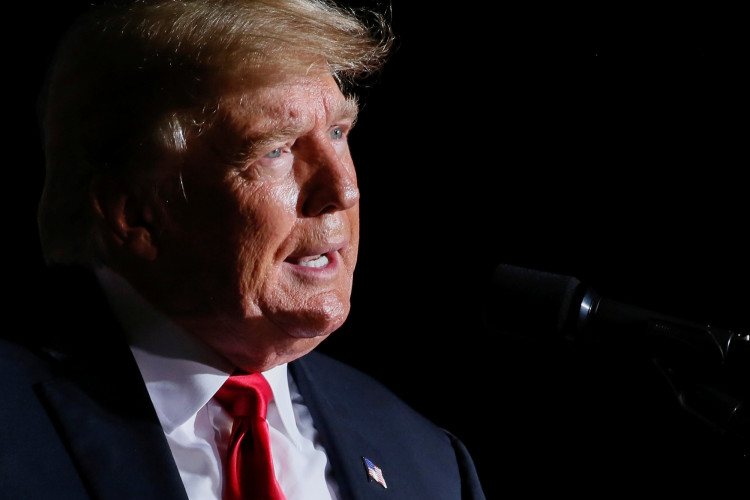Former President Donald Trump's sentencing in his New York criminal hush money case has been delayed until after the November 5 presidential election, marking another significant development in the high-profile legal saga. Manhattan Supreme Court Judge Juan Merchan ruled on Friday to push the sentencing date, originally set for September 18, to November 26, citing the need to ensure that the process remains free from any appearance of electoral influence.
The case centers on a $130,000 payment made by Trump's then-attorney Michael Cohen to adult film star Stormy Daniels ahead of the 2016 presidential election. The payment was allegedly made to silence Daniels about an affair she claims to have had with Trump years earlier-a claim Trump has consistently denied. Trump reimbursed Cohen in installments after his election victory, a transaction that led to his conviction on 34 counts of falsifying business records.
Trump has vigorously fought the charges, and his legal team has sought to dismiss the case, arguing that it should be invalidated based on a recent Supreme Court ruling. The July 1 decision by the Court expanded the scope of presidential immunity, a point Trump's attorneys have used to assert that his actions, while in office, should be shielded from prosecution. Judge Merchan stated in his order that he would rule on Trump's motion to vacate the jury's guilty verdict on November 12, just two weeks before the new sentencing date.
"This matter stands alone, in a unique place in this Nation's history," Judge Merchan wrote in his four-page order, emphasizing the importance of a sentencing hearing that is "entirely focused on the verdict of the jury" and free from distractions or distortions that could arise during the election period.
Trump reacted to the decision by reiterating his claims of innocence. "The case was delayed because everyone realizes there was no case, and I did nothing wrong," Trump told Fox News Digital. He added, "The case should be dead."
The legal maneuvering has not been without controversy. Trump's legal team has repeatedly attempted to have Judge Merchan recuse himself from the case, citing concerns over his impartiality. They pointed to the involvement of Merchan's adult daughter in a political firm that represents high-profile Democrats, including President Joe Biden. However, Merchan has rejected these recusal requests, stating that they lacked sufficient merit.
Manhattan District Attorney Alvin Bragg, whose office brought the charges against Trump, has remained firm in his stance. A spokesperson for Bragg's office responded to the latest ruling, stating that they are "ready for sentencing on the new date set by the court."
The case has become a focal point in Trump's 2024 presidential campaign, with the former president and his supporters framing it as part of a broader effort to undermine his candidacy. Trump campaign spokesman Steven Cheung echoed this sentiment in a statement, describing the case as an "Election Interference Witch Hunt" and calling for its dismissal.
The legal complexities surrounding the case have only deepened, particularly in light of the Supreme Court's ruling on presidential immunity. Trump's legal team has argued that the high court's decision should protect him from prosecution in this case, given that some of the evidence presented by the prosecution involved official acts performed during his presidency. However, the scope of this immunity remains a point of contention, and it will be up to the lower courts to delineate the boundaries between Trump's official and unofficial actions.
As the November election approaches, the delay in sentencing adds yet another layer of uncertainty to an already tumultuous legal and political landscape. Trump's ongoing appeals and the potential for further legal challenges mean that the final resolution of this case could be far from imminent. Meanwhile, Trump continues to campaign, maintaining that the charges against him are politically motivated.






